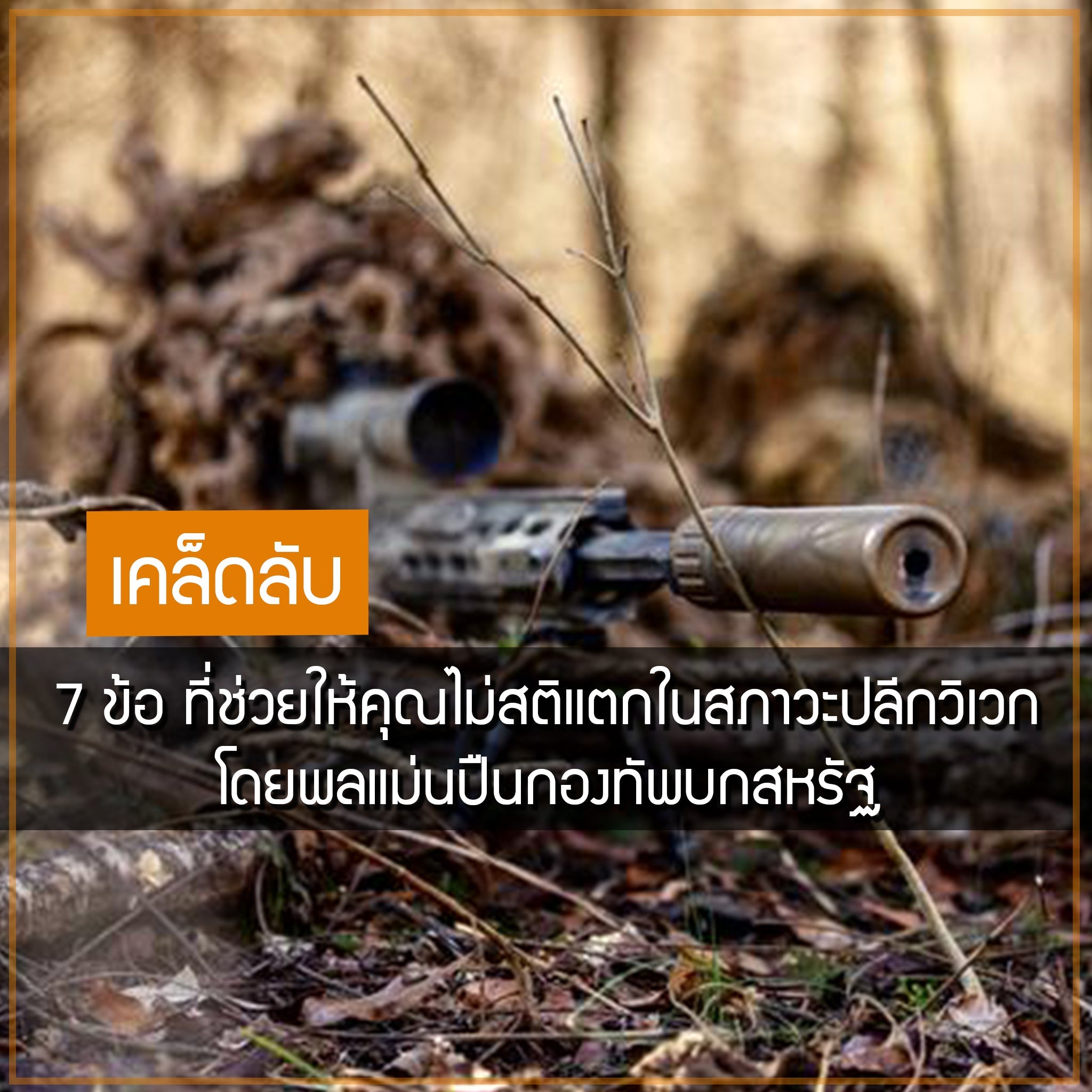
1) Always remember your mission.
When you are assigned as a sniper or marksman
"You are the ears and eyes of your entire company and your commanding officer."
Sergeant Major Kevin Sipe, a former U.S. Army sniper, said
And tell me more that
"There's always movement for you to see and explore."
Even if you can take your eyes off the scope for a while
But you should still be careful, explore the roads, vehicles.
Buildings, houses and people
There's always something to explore and think about.
For example, memorizing the characteristics of people in as much detail as possible.
Or ask yourself questions like:
"Do I feel like I've seen this person before?"
"Can we shoot through that wall?"
"How much and what type of explosives would it take to destroy that shelter or building?"
When going on a mission, believe me, there are always things that need to be planned and managed.
2) Break down the problem/what needs to be done.
Try writing a summary of the mission.
and break down the content into sections to manage it one by one
Set short-term goals from breakfast to lunch.
What will you survey, inspect, or record?
Focus on the moment by moment
Instead of worrying about what to do all day,
Doing this will help to some extent with the anxiety.
And you can collect more detailed information without having to worry about other tasks.
3) Always look for new positions.
"You should always be looking for new positions."
"And that goes for everything," Cype said.
For example, looking for ways to create, camouflage or move cover.
Find a way to make yourself a little more comfortable being still.
Or even always check the readiness of weapons."
4) Record any foreign objects in the situation and area.
"What happened that you missed?"
"That thing doesn't seem like it should be here."
"Has anything unusual happened that was different from the previous survey or the previous hour?"
No matter where you observe enemy territory
Let you try to imagine yourself in that situation.
Doing this will help you read your enemy's mind and know their routines.
Or even be able to plan an ambush attack. 
5) Find new ways to communicate.
On the battlefield, snipers do not go out on missions alone.
There will always be a spotter to protect and patrol as a partner.
In some situations, you may not be able to communicate by voice.
And that's when you get a little creative.
"Often I write or draw to communicate or share information," Cype says.
"We spend a lot of time sketching the areas we observe.
No matter the view from our eyes or
The imaginary image from above looks like a house plan or a city plan.
We also draw cartoons or funny caricatures hidden in the images for our partners to find and have fun."
"We never forget to take notes on what's happening at different times," Cype added.
What are we looking for? Our goals? Or even a joke?"
6) Think about what you want to do when the mission is over.
"I often imagine the food I want to eat and think deeply about it," Cype says.
What will be put into that dish? What will its appearance, color, and taste be like?"
"Or, in other words, I like to write down the names of people I miss.
Someone I want to talk to or go back to"
7) Always remember that it's none of your business.
Only one person
Most military missions
It will occur through the operation of the entire company or battalion.
Simultaneously, at different times and places
You should do what you should do without neglecting or overlooking.
Because what you do has an impact that can always change the situation.
"9 times out of 10 people who make mistakes, it is usually not them who suffer the consequences, but rather others."

Source: https://www.military.com/off-duty/2020/04/09/7-battlefield-tested-tips-us-army-sniper-how-not-lose-your-mind-isolation.html
Article: 7 Battlefield-Tested Tips from a US Army Sniper on How Not to Lose Your Mind in Isolation
Translated and edited by: Thithat Rinchai on November 13, 2020

